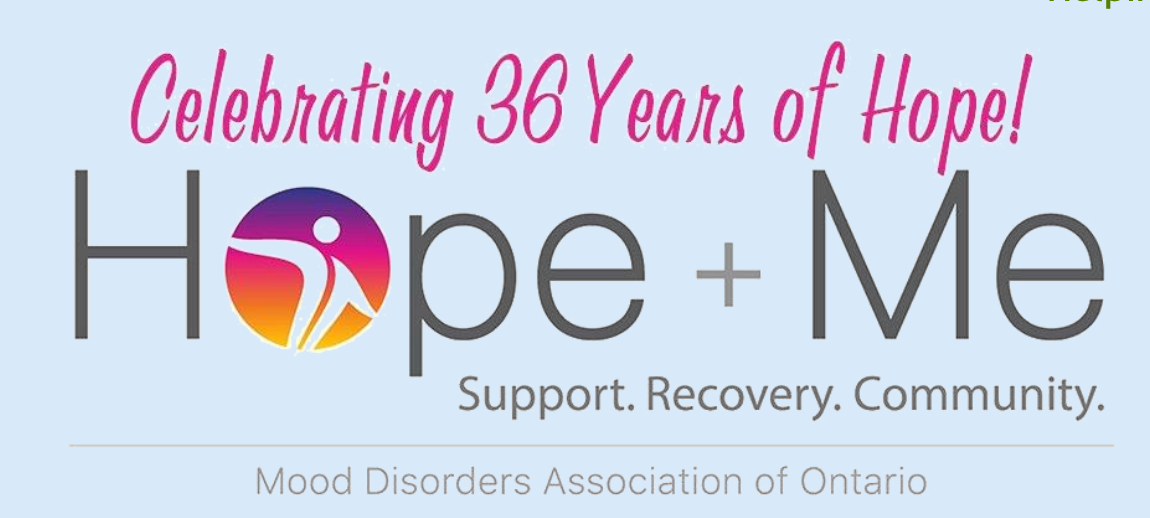Caring For Someone Living with Obsessive Compulsive Disorder (OCD)

To strengthen relationships between individuals living with OCD and their family members and to promote understanding and cooperation within households, the Mood Disorder Association of Ontario is providing a list of useful guidelines, adopted from the International OCD Foundation to be utilized by family members and caregivers:
1. Recognize Signals
The first guideline urges that family members learn to recognize the signs or signals of OCD. The signals to watch for include, but are not limited to:
Large blocks of unexplained time that the person is spending alone (in the bathroom, getting dressed, doing homework, etc.).
- Doing things again and again (repetitive behaviors).
- Constant questioning of self-judgment; excessive need for reassurance.
- Simple tasks taking longer than usual.
- Perpetual tardiness.
- Increased concern for minor things and details.
- Severe and extreme emotional reactions to small things.
- Inability to sleep properly.
- Staying up late to get things done.
- Significant change in eating habits.
- Daily life becomes a struggle.
- Avoidance
- Increased irritability and indecisiveness.
People with OCD usually report that their symptoms get worse the more they are criticized or blamed, because these emotions generate more anxiety. So, it is essential that you learn to view these features as signals of OCD and not as personality traits. This way, you can join the person with OCD to tackle the symptoms rather than become alienated from them.
2. Modify Expectations
People with OCD consistently report that change of any kind, even positive change, can be experienced as stressful. It is often during these times that OC symptoms tend to flare up; however, you can help to moderate their stress levels by modifying your expectations during these times of transition
3. Remember That People Get Better at Different Rates
There is a wide variation in the severity of OC symptoms between individuals. Remember to measure progress according to the individual’s own level of functioning, not to that of yours or others. Just as there is a wide variation between individuals regarding the severity of their OCD symptoms, there is also wide variation in how people recover. Be patient. Slow, gradual improvement may be better in the end to prevent relapse.
4. Avoid Day-To-Day Comparisons
You may hear your loved ones say they feel like they are “back at the start” during symptomatic times. It is important to help them see the overall changes since treatment began. Day-to-day comparisons are misleading because they don’t represent the bigger picture. When you see “slips,” a gentle reminder of “tomorrow is another day” can help combat self-destructive labeling. You can make a difference with reminders of how much progress has been made since the worst episode and since beginning treatment. You may find that the use of a 1-10 rating scale can be helpful. Ask, “How would you rate yourself when OCD was at its worst? When was that? How is it today? Let’s think about this again in a week.”
5. Recognize the “Small” Improvements
People with OCD often complain that family members don’t understand what it takes to accomplish something such as cutting down a shower by five minutes or resisting asking for reassurance one more time. While these gains may seem insignificant to family members, it is a very big step for your loved one. Acknowledgment of these seemingly small accomplishments is a powerful tool that encourages them to keep trying. This lets them know that their hard work to get better is being recognized and can be a powerful motivator.
6. Create a Supportive Environment
Try to learn as much about OCD as you can. Understanding the disorder can help you avoid personal criticism and focus on the symptoms rather than the individual. Your family member still needs your encouragement and your acceptance as a person but remember that acceptance and support does not mean ignoring the compulsive behavior. Gang up on the OCD not on each other!
7. Set Limits, But Be Sensitive to Mood
With the goal of working together to decrease compulsions, family members may find that they have to be firm about:
1) Prior agreements regarding assisting with compulsions;
2) How much time is spent discussing OCD;
3) How much reassurance is given; or
4) How much the compulsions infringe upon others’ lives.
It is commonly reported by individuals with OCD that mood dictates the degree to which they can divert obsessions and resist compulsions. Likewise, family members have commented that they can tell when someone with OCD is “having a bad day.” Those are the times when family may need to “back off,” unless there is potential for a life-threatening or violent situation. On “good days,” individuals should be encouraged to resist compulsions as much as possible. Limit setting works best when these expectations are discussed ahead of time and not in the middle of a conflict.
8. Support Taking Medication as Prescribed
All medications have side effects that range in severity. Ask your family member if you could periodically attend their appointments with the prescribing physician. In this way you can ask questions, learn about side effects, and report any behavioral changes that you notice.
9. Keep Communication Clear and Simple
Avoid lengthy explanations, rationales, and debates. This is often easier said than done, because most people with OCD constantly ask those around them for reassurance: “Are you sure I locked the door?” or “Did I really clean well enough?” Tolerating this uncertainty is an exposure for the individual with OCD and it may be tough. Recognize that the person with OCD is triggered by doubt, label the problem as one of trying to gain total certainty about something that cannot be provided; this is the essence of OCD and the goal is to accept uncertainty in life.
10. Separate Time Is Important
Family members often have the natural tendency to protect their loved one by caretaking all the time. This can be destructive because family members need their private time and opportunities for self-care practices too. Empower your loved one by fostering self-efficacy, give them the message that they can care for themselves. Engaging in your own self-care practices is also great role modelling for the person with the OCD.
11. It Has Become All About the OCD!
Whether it is about asking and providing reassurance to the family member with OCD or talking about the desperation and anxiety that the illness causes, families struggle with the challenge of engaging in conversations that are “symptom free,” an experience that feels liberating when achieved. We have found that it is often difficult for family members to stop engaging in conversations around the anxiety because it has become a habit and such a central part of their life. It is okay not to ask,” How is your OCD today?” Some limits on talking about OCD and the various worries is an important part of establishing a more normative routine.
12. Keep Your Family Routine “Normal”
Often families ask how to undo all of the effects of months or years of succumbing to their loved one’s OCD symptoms. For example, to “keep the peace” a husband allowed his wife’s contamination fear to prohibit their children from having any friends into the household. An initial attempt to avoid conflict by giving in just grows; however, obsessions and compulsions need to be contained. It is important that children have friends in their home or that family members use any sink; sit on any chair, etc. Through negotiation and limit setting, family life and routines can be preserved. Remember, it is in the individual’s best interest to tolerate the exposure to their fears and to be reminded of others’ needs. As they begin to regain function, their wish to do more increases.
13. Be Aware of Family Accommodation Behaviors
Firstly, there needs to be an agreement between all parties that it is in everyone’s best interest for family members to not participate in rituals (Family Accommodation Behaviors). However, in this effort to help your loved one reduce compulsive behavior, conflicts can arise as you could be perceived as being mean or rejecting even though you are trying to be helpful. It may seem obvious that family members and individuals with OCD are working toward the common goal of symptom reduction, but the ways in which people do this varies. Attending a family educational support group for OCD or seeing a family therapist with expertise in OCD can often facilitate family communication.
14. Consider Using a Family Contract
The primary objective of a family contract is to get family members and individuals with OCD to work together to develop realistic plans for managing OCD symptoms. Creating goals as a team reduces conflict, preserves the household, and provides a platform for families to begin to “take back” the household in situations where most routines and activities have been dictated by an individual’s OCD. By improving communication and developing a greater understanding of each other’s perspective, it is easier for the individual to have family members help them to reduce OCD symptoms. It is essential that all goals are clearly defined, understood, and agreed upon by all family members involved with carrying out the tasks in the contract. Some families are able to develop a contract by themselves, while most need some professional guidance and instruction. Be sure to reach out for professional assistance if you think that you could benefit from it.





